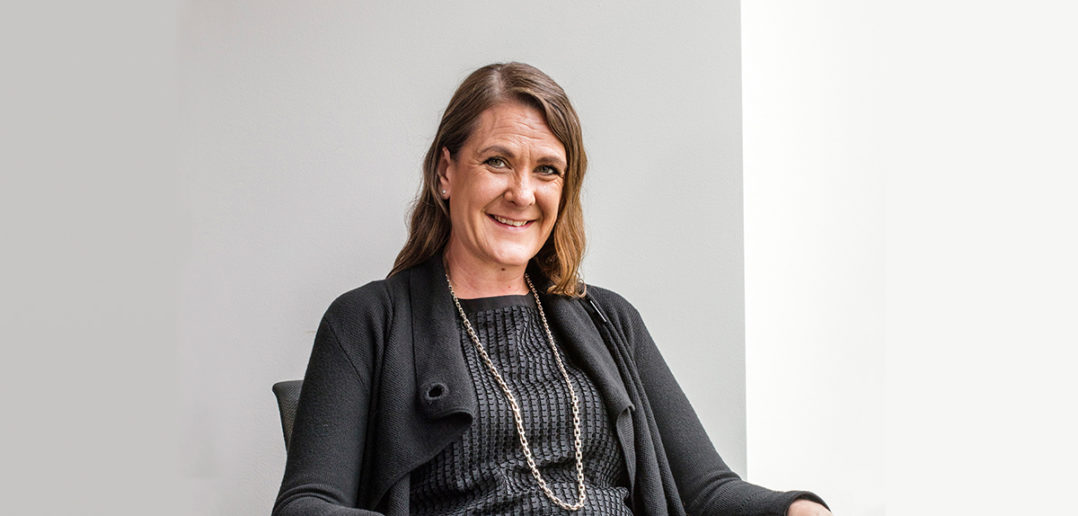The real estate and construction industries have long had a problem with a lack of diversity. The extent of the issue was underlined earlier this year as UK companies reported their gender pay gap, which showed a gulf between the overall salaries earned by women and men collectively.
But many in the industry are now directly addressing the diversity deficit with game-changing initiatives. One such company is Lendlease, which as one of the government’s ‘early adopters’, was the first large property and construction business to publish its gender pay gap, six months ahead of the government’s deadline.
MIPIM UK caught up with Lucy Homer, head of design and technical at Lendlease, to find out more about how boosting diversity can change the game.
MIPIM UK: To what extent do you think a lack of diversity remains a problem?
Lucy Homer: The industry has come a very long way in recent years in challenging outdated stereotypes and is very different from when I started out some years ago (I won’t say exactly how many!) For example, a construction site today is completely different to a decade ago and would surprise many who only have an outside view of the industry. The level of technology that exists and is used on a day to day basis is incredible – so too the focus on sustainability, innovation, wellbeing, and the extent of the measures aimed at ensuring safety. But it is clear there is one issue where we still fall behind other sectors: the vast majority of workers are still men. In fact, according to UCATT, just 11% of the workforce is female. That is a problem and it needs to change.
Why did Lendlease want to take the lead in publishing its gender pay gap?
We take the lack of diversity across the industry very seriously and have done for many years. Lendlease saw the gender pay gap reporting not as a threat or something to fear but as an opportunity to tackle the issue head on. It gives property and construction the chance to come together and look at why we are not as diverse as other sectors, why it matters and what can be done to change the situation.
The government’s definition of the gender pay gap does not refer to equal pay for equal work – something Lendlease does as a matter of course – but rather the overall difference in salaries earned by women and men collectively. So the sheer lack of women in the industry means that, almost regardless of the roles that women are doing, the figures will show a gulf in what women earn compared to men. They show that despite all the progress that has been made in recent years, the industry still has a long way to go.
Why is diversity so important?
This is something I’m incredibly passionate about – I firmly believe that employing people from diverse backgrounds makes a business stronger, more competitive and a better place to work. This means boosting diversity is not only the right thing to do, but is a business imperative – it is embedded into everything we do. And of course diversity goes deeper and wider than improving the representation of woman. We want to see a broader BME and LGBTQ+ representation in the business as well. Bringing people from diverse backgrounds into the business brings different perspectives, fresh thinking, creativity and innovation. If that happens across the industry then it will be game changing.
I firmly believe that employing people from diverse backgrounds makes a business stronger, more competitive and a better place to work. – Lucy Homer, Head of Design and Technical, Lendlease Europe
So what can be done to tackle the lack of diversity?
To tackle the gender pay gap we have put in place a series of measures to redress the balance. We want to hire more women and support them to reach the top roles. So we have introduced a 50:50 gender mix graduate intake, and a 50:50 target for Lendlease’s ‘future leaders’ programme. We also have a rule that all recruitment shortlists include women, and all interviews panels are gender balanced and have diverse viewpoints. We are also enabling flexible working and support family leave and we are providing full pay for six months maternity leave, adoption and shared parental leave.
We also ensure that everyone at Lendlease completes an unconscious bias self-awareness training module. We view this as very much the first step in helping people become aware of their own biases. Leadership behaviour assessments have also been rolled out to anyone in the business who manages others. This means all Lendlease’s leaders are assessed and trained to understand inclusive measures that allow everyone in their team, regardless of background, to perform to the best of their abilities.
What progress has been made?
There is of course a long way to go before construction is as diverse as other industries. But we are making progress. Lendlease’s Construction business performs well above industry standards: one in five of our workforce is female, for example, compared to one in ten industry-wide.
Construction sites are particularly challenging– most site teams across the industry are just 1% women. But at Glasshouse Gardens, our residential scheme in Stratford, east London, some 10% of our construction team on site was female. That was a notable achievement – and it’s certainly a long way from when I joined the industry as a newly qualified architect where very often I was the only woman on site.
At graduate level our BME and sexual orientation representation is ahead of national averages for graduate employers. We have met our 50:50 graduate intake gender target for the past three years, despite the proportion of women studying construction-related degrees being significantly below this target. In fact, 2018’s intake was 62% female – the first time we have brought more women in at graduate level than men. In the last 18 months, we have also increased senior female representation across the group from 24% to 29% – but we can still do better and are now targeting 33%.
So the game is changing?
Yes, most definitely! Change is possible and I think there is now a growing acceptance across the industry that it is no longer enough to say you care about diversity and inclusion – you must actively champion it and demonstrate progress.



